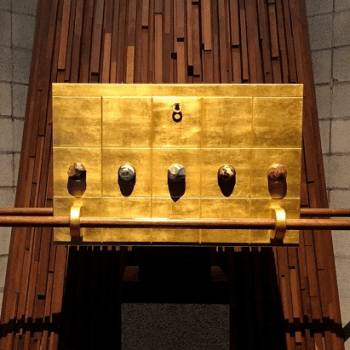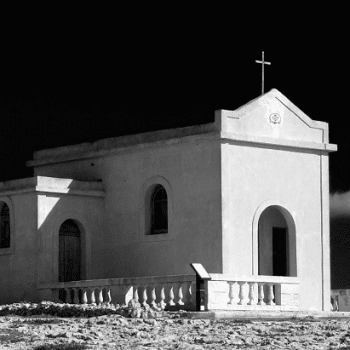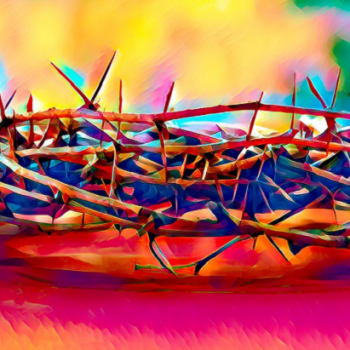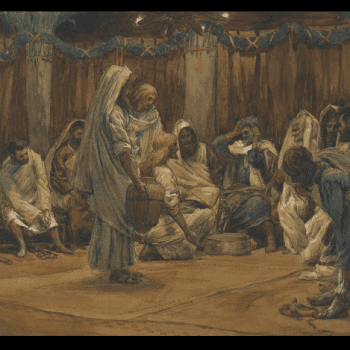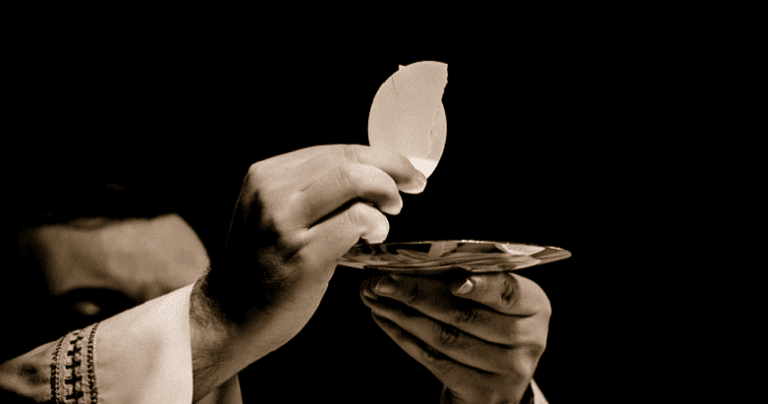
The Mayflower Pilgrims, as Puritan Calvinists, saw yearly festivals as a corrupt Catholic usage, and so they never kept a yearly “Thanksgiving Day.”
The Pilgrims came to North America on the Mayflower in the year of our Lord 1620, and celebrated their first harvest with a meal in the following year, 1621.
However, in the years that followed, they did not keep a yearly commemoration of that first thankful harvest festival.
They were Puritan Calvinists who rejected the keeping of yearly festivals, because that was a Catholic custom.
In the United States of America, our fixed annual day of national Thanksgiving to God did not begin until President Abraham Lincoln’s proclamation of it on the third of October in the Year of Our Lord 1863, that is, two hundred and forty-two years after the first Puritan harvest in North America.
The Puritans were not even the first Christian colonists in what is now the U.S.A.
Fifty-five years before the Puritans landed in what is now Massachusetts, a fleet of ships carrying more than a thousand Catholic colonists landed in Florida, on the Feast of the Birth of the Blessed Virgin Mary, the eighth day of September in the Year of Our Lord 1565.
Symbolically, they let a priest carrying a cross be the first to set foot on dry land: Father Francisco López de Mendoza Grajales.
The fleet’s captain general, Pedro Menéndez de Aviles, then stepped ashore to kiss the cross in the hands of the priest.
The rest of the colonists did the same.
They sang the ancient Latin hymn Te Deum.
That hymn is known in a German version as Grosser Gott, and, from the German, has been translated into English as “Holy God, We Praise Thy Name”— a hymn we use at Mass sometimes.
After the Florida colonists venerated the cross, they celebrated the Mass.
The Mass is the celebration of the Eucharist— a word from Greek meaning thanksgiving.
The Florida Catholic colonists offered Thanksgiving to God at Mass before they did anything else, and then they celebrated with a meal.
Then followed daily Thanksgiving to God at Mass by Catholics for fifty-five years before the Puritan Pilgrims landed here.
Furthermore, after the arrival of the Puritans, who rejected the notion of yearly feasts, the Catholic colonists continued daily Thanksgiving to God at Mass for the next two hundred and forty-two years, until President Lincoln created our yearly national day of Thanksgiving to God.
For the one hundred and fifty-seven years since 1863, our nation has kept one day a year for national Thanksgiving to God.
However, for nearly three times as long, that is, for the four hundred and fifty-five years since Catholics landed in Florida, we have offered not once-yearly but DAILY Thanksgiving to God at Mass.
When we sing the Gloria (or Glory) at Mass, we say to God: GRATIAS agimus tibi, “We give you THANKS.”
At Mass, when the reader has finished voicing “The Word of the Lord,” we all say, “THANKS be to God.”
Later in the Mass, the priest tells us “Lift up your hearts” and “Let us give THANKS to the Lord our God.”
Then, the priest goes on with the lengthy Thanksgiving prayer that makes known and present the Eucharist, the Thankful Body and Blood of Christ.
Later, as the Mass comes to a close, the priest blesses us, dismisses us, and then, as the People of God, the Church, we will have the last word: “Thanks be to God.”
Four hundred and fifty-five years of Catholic daily Eucharistic THANKSGIVING in this nation!
The Thankful-Eucharistic Flesh and Blood of Christ, through whom all things were made, is at the heart of this mystery.
God the Son received his own self from God the Father in the oneness of God the Spirit.
The everlasting answer of the Son to his Father is “Yes, Father” and “Thank-You, Father.”
The “Yes” and “Thanks” of Jesus save us— the “Yes” and “Thanks” that we take into ourselves in the Body and Blood of Christ.
We must take it in, but we must even more give it back by thought, word and deed— choosing to live out both “Yes” and “Thanks”— as Jesus has told us: “Do this in memory of me.”
Only so will we rise from the dead into the everlasting joy of Thanksgiving in God’s renewal of heaven and earth for us.
Turn. Love. Repeat.



